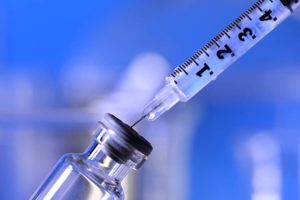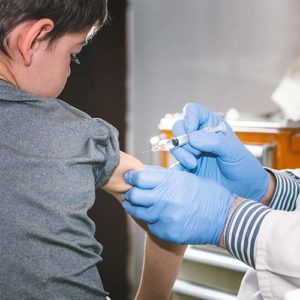In the olden days, and by “olden” I mean …
last year, vaccinating patients against pneumonia was simple—we gave everyone two shots and that was it, but new recommendations have created a lot of confusion. Let’s remedy that and rock your world at the same time.
First of all, there is no such thing as a “pneumonia” vaccine. The vaccines which prevent pneumonia are directed against a single virus called Respiratory Syncytial Virus and a single bacteria called Streptococcus pneumoniae. Because bad actors often get nicknames, like “Billy the Kid” or “Bugsy Siegel,” this bacteria is also called “strep pneumo” or “pneumococcus.” The name sure sounds like pneumonia, but pneumococcus also causes meningitis, sepsis (bacteria in the blood stream), ear infections, and less often infections in the heart, joints, bones, and internal organs. There are more than 90 different strains of pneumococcus, although most disease is caused by about two dozen of them. Having immunity against one strain does not protect you against the others.
Pneumococcus lives in the nose of infants and young children. If you put a cotton swab up the nose of a healthy 1 year old, about 50% of the time you’ll find pneumococcus in there. Various strains of the pneumococcus bacteria take turns living in a kid’s nose. Sometimes, when a child acquires a new strain, he or she develops an ear infection a few weeks later. One strain might live in there for six months only to be replaced by another. In adults, the rate of colonization is lower, but you can still find pneumococcus living in about 3 percent of healthy adult noses as well.
We’ve had a pneumonia vaccine since the 1970s, but we never gave it to infants. The reason, as any Hollywood celebrity will tell you, is that vaccines cause autism. Ok, just kidding. The real reason is that the pneumonia vaccine we’ve been giving to people at age 65, called the Pneumovax, and more technically the PPSV23, does not produce a good antibody response in children. Children get a different vaccine, the PCV15 or the PCV20, which does produce a better immune response.
Because there are so many strains of pneumococcus, vaccine manufacturers stick in as many different types into their vaccines. You might think that the PPSV23 is better than the PCV21 because it has more strains in it. However, things are not so simple. The PPSV part of the vaccine name stands for Pneumococcal Polysaccharide Vaccine. What’s missing is an adjuvant. An adjuvant is a molecule that, when mixed with a vaccine, produces a stronger antibody response. So, the PCV family of pneumonia vaccines, where PCV stands for Pneumococcal Conjugate Vaccine does have an adjuvant.
The PCV21, sold under the brand name “CAPVAXIVE, is better than the PPSV23. The key difference is the word “Conjugate.” Here, conjugate does not mean conjugate as in conjugating a verb (I walk, Bill walks), or as in conjugal visits in prison, but as in “joined to.” What about that immune booster? It is a version of the toxin produced by the bacteria which causes diphtheria. Ok, it is not really the diphtheria toxin, but something that looks almost exactly like it to the body. We trick the body into thinking it has been infected with diphtheria and this produces a good immune response to the vaccine.
The CDC recommends everyone age 50 and older get a one-time vaccine against pneumococcal pneumonia. In our practice, we often delay giving the vaccine until patients are closer to age 65, which is what used to be the recommended age for pneumonia vaccination. It is ok to get it around age 50, but less essential in younger patients. One problem is that the vaccine’s effectiveness, only around 50%, will decline over time and when you really need this protection, say when you’re 80, it may be less effective. Once we have more experience with the vaccine, we’ll sort out if revaccination is needed and how often booster shots should be given.
The other vaccine for pneumonia is the RSV vaccine. This is given to healthy people at age 75 and protects against one type of viral pneumonia. We delayed giving that vaccine when it was brand new, owing to safety concerns. We wanted a few million other patients to try it out first before many of our own patients were vaccinated. Safety data has come in and is very good for this vaccine. Protection declines over time. It is a great shot in the first year, maybe 80-90% effective, but that declines in subsequent years. Boosters are not yet recommended and it is unclear if they will work or not. If you are clairvoyant and know that you will be getting RSV in the next year, definitely get a dose of the RSV vaccine. Otherwise, around age 75 is good, unless you have certain chronic medical conditions, like bad heart or lung disease, where it is ok to get it around age 65.



